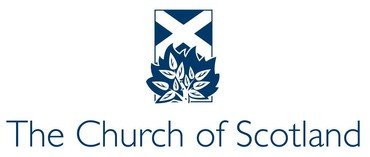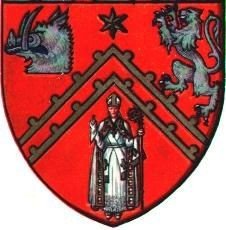Kirk Session
The Church of Scotland

The Church of Scotland's governing system is presbyterian which means that no one person or group within the Church has more influence or say than any other. The Church does not have one person who acts as the head of faith, as that role is the Lord God's. Its supreme rule of faith and life is through the teachings of the Bible.
The Church of Scotland government is organised on the basis of courts, mainly along lines set between 1560 and 1690. Each of these courts has committees, which may include other members of the Church, and at national level employ full-time staff.
At a local level, the parish, the court is a kirk session . Kirk sessions oversee the local congregation and its parish, and consist of elders presided over by a minister.
At district level, the court is a presbytery. Presbyteries consist of all the ministers in the district and an equal number of elders, along with members of the diaconate (a form of ordained ministry, usually working in a complementary role in a ministry team in both parish and industry sector contexts). There are 46 presbyteries across Scotland, England, Europe and Jerusalem.
At national level, the court is the highest court of the Kirk, the General Assembly. The General Assembly consists of around 400 ministers, 400 elders, and members of the diaconate, all representing the presbyteries. Visit the General Assembly page on the Church of Scotland website for more information about how it functions. The Church of Scotland website - churchofscotland.org.uk - is accessible by clicking here.
Dunblane Cathedral Kirk Session
*** 2019 Life & Work Supplement on Church of Scotland Radical Action Plan ***

Dunblane Cathedral Kirk Session operates under a model of "Unitary Constitution". This is a form of Church government, which has strong parallels and similarities to the “Quoad Omnia” approach. Whilst the Kirk Session is responsible, and individual members of the Session as Elders have to act and take seriously their role as Trustees in relation to charity legislation, the practice allows for greater flexibility in the way it allows elders to use their skills and talents in their areas of interest.
In operation, while the Kirk Session in this form of governance makes its decisions, and sets its priorities on behalf of the Congregation, it often relies on groups (sometimes known as teams, committees or ministries), to look after various aspects of the Congregation’s life and witness (e.g. Finance, property, mission, community engagement). The Kirk Session is responsible for preparing the remit of each Committee. The members of these groups have to include Elders, but do not need to comprise of Elders in total, and therefore a number of people, who would be unwilling or unable to accept the obligations and duties of Eldership, are able to be as fully involved in the life of the Congregation and its organisation as circumstances allow.
Click here to contact the Session Clerk of the Kirk Session for Dunblane Cathedral.
Kirk Session Members' Area
If you are a member of Dunblane Cathedral Kirk Session, please enter your supplied password and click on the button to have access to the secured Kirk Session material.
Enter your password:
If you are having difficulties gaining access:
1. Ensure the password is correct
2. Click on the button - do NOT press the return key
3. Ensure that your device has not auto-corrected any of the words, or added a space after the last word - THIS IS VERY COMMON WHEN CUTTING AND PASTING as the paste action may automatically add an invisible space at the end of the text.
4. If you are having problems due to auto-capitalisation by your system, try entering the password correctly in a text form or document, and then copying and pasting it into the field above.
If you still are having issues accessing the secure area, please click here to contact the website administrator.

